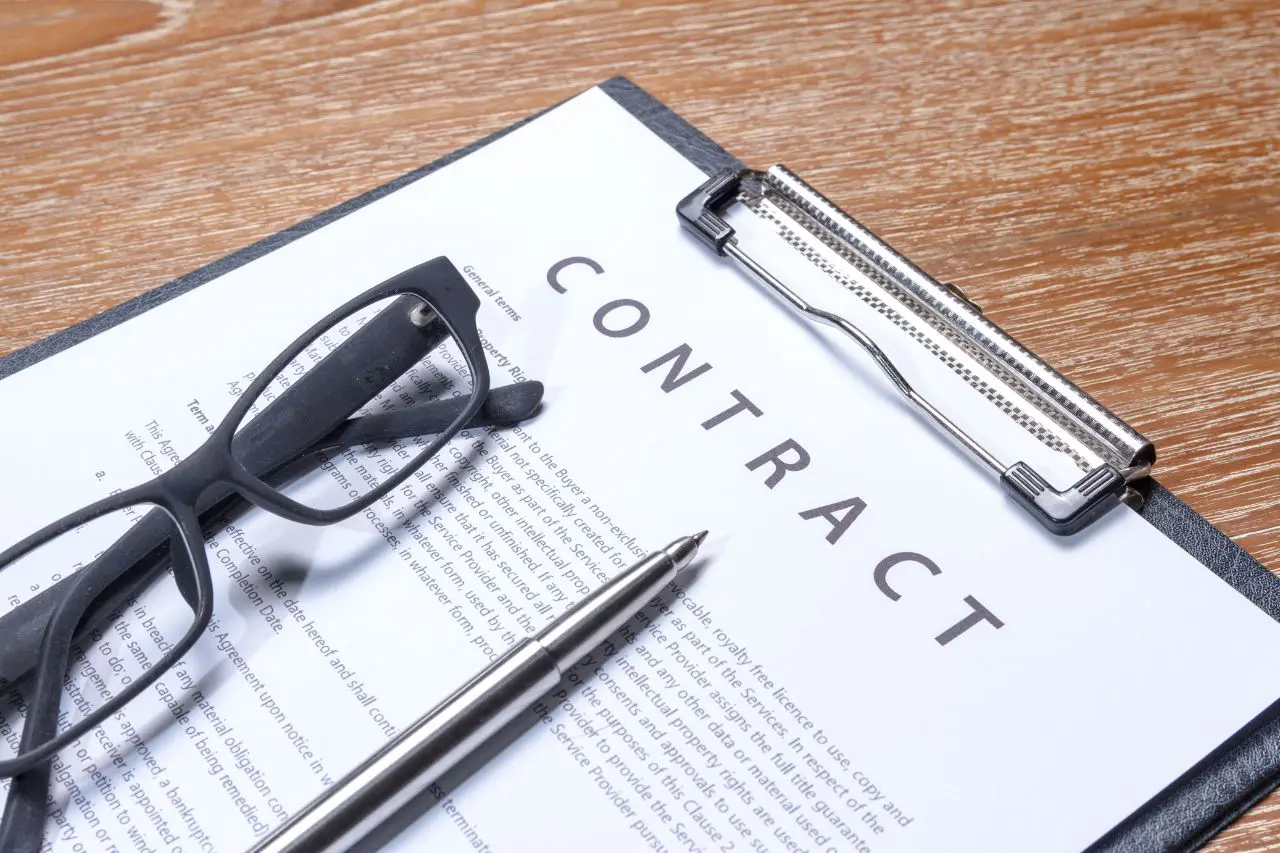Table of Contents
Importance of Securing Contracts
Contracts outline the terms of an agreement and protect both parties in case there are problems in the future. These are written legal documents that clearly outline each party’s responsibility to prevent any risks of misunderstanding or miscommunication.
Contracts usually detail how much a project will cost, its expected completion, and the exact nature of services to be provided. They also contain other relevant clauses like payment terms, termination, and confidentiality.
A well-crafted contract gives both parties peace of mind that the entire project will be handled professionally. In certain industries, contracts help ensure regulatory compliance since there are clauses that address relevant laws and standards. This will help businesses avoid any legal penalties.

Best Ways To Secure a Contract
Business owners, freelancers, and other professional endeavors can benefit from a contract. Securing one requires preparation, negotiation skills, and relationship-building. Here are several best practices you can follow:
1. Understand your client’s needs.
Before making a proposal or sending a contract to a client, you must thoroughly research their needs. Conduct due diligence and go on discovery calls to be certain that you’re making a proposal that addresses their specific pain points. Demonstrate that you understand your client’s goals by showing how your products and services can help them.
2. Demonstrate your unique value.
When entering a contract, you must be clear on what you bring to the table. You can nail this by doing your research and benchmarking against the competition. Ensure you offer something they don’t. Substantiate your claims by providing evidence of your expertise, such as past successful projects and client testimonials. Your client must see the benefits and value you bring to their team so they’ll be convinced to sign a contract with you.
3. Build relationships.
Negotiating a contract isn’t purely about numbers and terms. The final contract is often shaped by your relationship with the client. When you’ve established rapport and trust with the other party, they’ll be more cooperative and willing to compromise with you on certain terms.
Building rapport isn’t difficult. You can easily accomplish this by being respectful and courteous at all times. Clients should know that you’re trustworthy, and this is achieved through professionalism. You can also try to establish a common ground and build a positive atmosphere so they’ll look forward to working with you.
4. Negotiate fair terms and be flexible.
Know your market value and be prepared to negotiate terms that are beneficial to both parties. When negotiating a price, you must consider your bottom line and be willing to compromise where possible without undermining your value. Always aim for a win-win situation where both parties feel satisfied with the contract.
In case the client has different timelines, show willingness to adapt and offer flexibility. Be willing to provide options or packages that can suit varying budgets. In case there are adjustments or amendments to the original contract, discuss them during the negotiation phase until everyone arrives at an amicable agreement.
Building a contract is a collaborative process that benefits both parties. The best strategy in securing one is to arrive at a mutually beneficial solution.
5. Leverage technology to secure the deal.
Once both parties have agreed to the terms, it’s time to secure the deal. You can use digital tools such as contract management software to streamline the process and ensure accuracy.
Take time to review all the details thoroughly before signing the contract. You can use an e-signature solution to facilitate quick and secure contract signing. You can also go further and utilize a project management tool to keep track of deliverables and deadlines.
Once everything’s signed, keep a copy of the contract for your records. Be sure to follow up on its implementation, and don’t be afraid to evaluate it for future re-negotiations.

How To Send Out Secure Contracts
Poor contract management presents a common risk for organizations that don’t have a secure system in place to safeguard these important legal documents. Contracts contain valuable information and can be susceptible to hacking when not properly secured.
To securely manage and send out contracts, you should observe the following:
- Utilize secure online forms to request data for new contracts. These forms can encrypt data, so none of this confidential and sensitive information becomes at risk of falling into the wrong hands.
- Opt for digital contracts instead of paper contracts. It’s easier to secure digital contracts because they can be stored in secure servers. In contrast, paper contracts take up office space and can be easily stolen or lost.
- Employ eSignatures, which are more secure since they’re directly tied to an individual, minimizing the risks of forged signatures. They also speed up the approval and execution of your contracts.
- Store contracts in a secure and centralized area. You can take advantage of cloud-based repositories that implement robust data security.
- Control access to contracts and related data. Utilize access controls such as user permissions and multi-factor authentication to ensure only authorized individuals can view and sign the contract.
Confidently Secure Contracts with Fill
Contract management becomes efficient and secure using Fill’s cutting-edge features. You can streamline the contract lifecycle with an intuitive platform that makes it easy to request the necessary data. You don’t have to worry about data breaches because everything is secured using the latest military-grade encryption.
Fill also ensures you can draft, manage, and legally sign contracts that meet the standards of HIPAA, GLBA, GDPR, UETA, and the E-Sign Act. This ensures your business complies with federal laws and industry regulations.
Get started with a free trial today.




